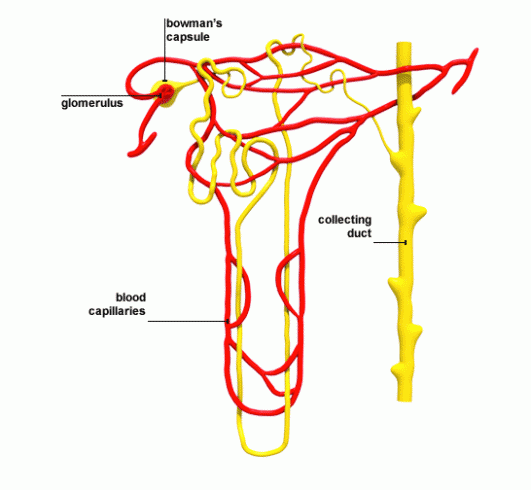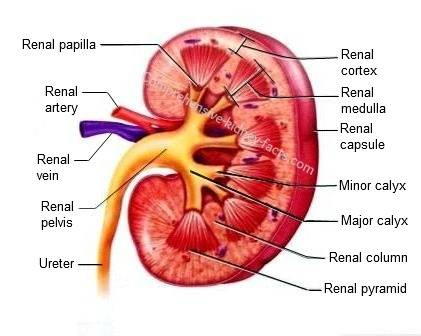The functional unit of the kidney is the nephron. The nephron controls the amount of water passing through the kidneys, regulating the concentration of water in blood in the body and removing waste substances such as urea, creatinine and excess body water. It then produces urine that passes this waste out of the body. There are around a million nephrons in each human kidney. See below for a diagram of a nephron.

The kidneys are two bean shaped organs situated on either side of the body just below the rib cage. The kidney plays a vital role in regulating human bodily functions which is why damage to the kidneys can be fatal. They regulate electrolyte balance, maintain an acid-base balance and regulate blood pressure. They receive their blood supply from the paired renal artery which comes from the abdominal aorta and into renal veins and filters the wasteful substances through the ureter and into the urinary bladder.

Kidney disease is one of the biggest killers in the UK. It is often difficult to identify kidney disease until it is in a late stage. It is therefore often called a 'silent killer'. Kidney disease is usually caused by changes in the renal arteries which is often caused by high blood pressure. This can make the kidneys stop working and therefore stop filtering out waste substances from the blood, polluting the body. It can be identified in early stages by blood and urine tests but most symptoms only occur when kidney disease is at an advanced stage. These symptoms include tiredness, swollen ankles, shortness of breath, blood in the urine and nausea.
If one has two healthy kidneys, one can even donate one of these kidneys as one kidney is capable of doing both the kidneys' jobs. Although this is a very serious decision to make, more and more people are making a living donation of one of their kidneys. Even with this benevolence, there is nonetheless a huge shortage of kidneys available for transplant while people in need of transplants continue to rise.

